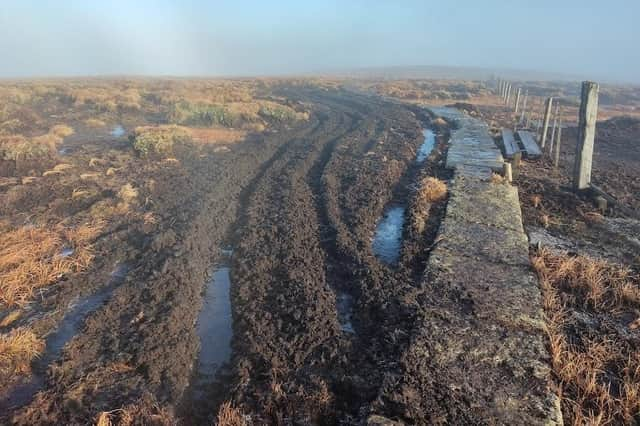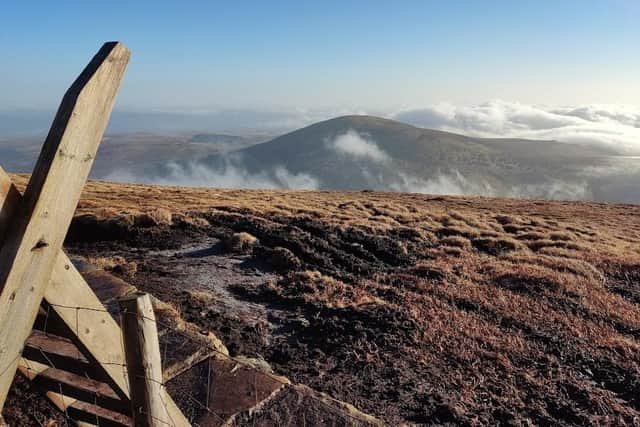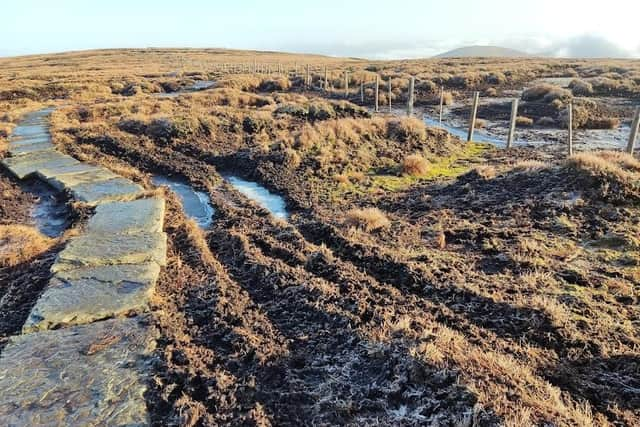Motor vehicles cause significant damage on Cheviot summit


At least two motorised vehicles are thought to have been unlawfully taken to the top of Northumberland’s highest hill.
The Cheviot Peatland Restoration Project, one of the largest and most challenging peatland restoration projects in the North of England, had restored 151 hectares of damaged and eroded peatland habitat – an area roughly the size of 241 football pitches.
Advertisement
Hide AdAdvertisement
Hide AdRobert Mayhew, head of conservation and environment at Northumberland National Park Authority, said: “Unfortunately, due to the irresponsible behaviour which led to this incident, there is damage up to 20m wide in some sections and this means some of the heather brash which was spread on bare peat, and was starting to grow in places, has been destroyed.


"Where the peat is wet, the tyres have cut deep ruts and some of the Pennine Way flagstones have been dislodged, thereby causing a hazard to walkers who venture to the Cheviot summit.
"It is obvious from our site visit that a vehicle may have got stuck and this has resulted in significant churning of the peatland habitat.
“This incident has set back the conservation work to protect the fragile peatland which is locking up carbon and restoring nature. Peatland is an extremely fragile habitat; every metre depth of peat takes 1,000 years to form.”
Advertisement
Hide AdAdvertisement
Hide AdHe added: “An initial tidy up action will take place and when the secondary phase of peatland restoration on Cheviot begins, we will need to address the damage to the area.


"This will involve the cutting of heather brash and flying it to the site with a helicopter where volunteers, contractors and staff will then spread the brash across the damaged areas. In addition, sphagnum and cotton grass plug plants will need to be planted to encourage the full restoration of the area.
“Hearing about this damage will be disheartening to the many volunteers who worked tirelessly on this project – it is no mean feat to walk up Cheviot summit each day for a full day’s work.
"In time, we will be asking volunteers to once again help us to restore this damage and complete the important peatland restoration work in this nationally recognised SSSI site and Northumberland’s highest peak.”